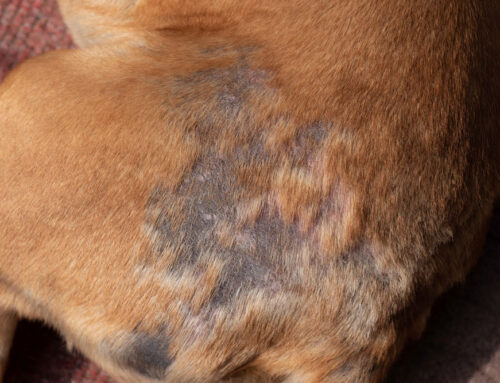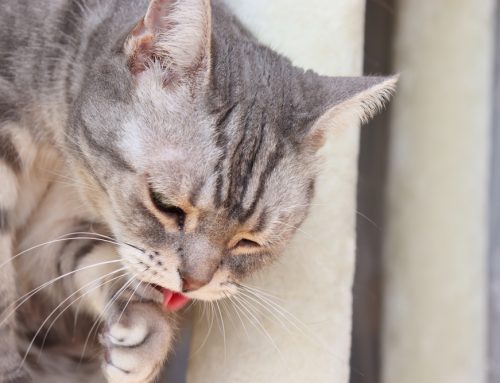Do you know if cats can get heartworm disease? Or, if your neighbor’s infected dog can infect your own dog? Our Tidmore Veterinary Hospital team answers these questions and more as we separate heartworm disease and prevention facts from fiction.
Fact or fiction?: Heartworm disease is contagious
Fiction: Heartworm disease cannot be spread by direct pet-to-pet contact. For example, your dog cannot get heartworm disease from contact with your infected neighbor’s dog or their feces. Instead, heartworm disease is transmitted only through an infected mosquito’s bite. So, if your neighbor’s dog has heartworm disease, they can act as a reservoir for infection in your area, but cannot directly infect your pet.
Fact or fiction? Heartworm disease is a danger for pets year-round
Fact: Here in Northport, Alabama, we don’t experience weeks or months of below-freezing conditions during the winter, which means our insect population never goes into hiding. Although colder climates have fewer mosquitoes in the winter, these hardy insects can pop back up as soon as the temperature rises above freezing. In fact, heartworm disease has been diagnosed in pets in all 50 states, proving no cold-weather state is safe from mosquitoes. And, since Alabama is so warm during the winter, your pet is more at risk all year long.
Fact or fiction?: Heartworm disease is easily treatable
Fiction: Unlike a roundworm infection, you can’t simply give a dose of deworming medication to treat this “worm.” Rather, heartworm treatment involves injecting an arsenic compound into your pet’s lumbar muscles, which can be painful, and they may need two or three of these injections given a month apart. Your dog must be exercise-restricted during the entire treatment process, and for another month following the final injection. If your pet is too active, they can suffer from serious, and potentially fatal, side effects as the dying worms are eliminated.
Fact or fiction?: Cats can’t get heartworm disease
Fiction: Many people think of heartworm disease as a canine-only condition, and while heartworms prefer to infect dogs and wild canines, they can infect any mammal, including cats. Your feline friend may never venture outdoors, but they can still contract heartworm disease, because opportunistic mosquitoes can sneak in through open doors or tears in window screens and infect your cat. Worse, no heartworm treatment is available for cats. If your cat becomes infected, we can only provide supportive nursing care to manage their illness signs and wait for the cat’s immune system to clear the infection.
Fact or fiction?: Heartworm prevention can protect your pet from intestinal parasites
Fact: Heartworm prevention protects your pet from not only heartworms, but also intestinal parasites like roundworms. Some heartworm preventives are also combined with flea and tick preventives, providing an all-in-one product that will protect your pet from all parasite categories.
Fact or fiction?: Heartworm disease in pets is easy to identify
Fiction: Heartworm disease takes months to fully develop in your pet. After an infected mosquito bites your pet, immature heartworms travel through the bloodstream to reach the major blood vessels surrounding the heart and lungs. By this time, the heartworms have reached adulthood and can begin reproducing. This process takes about six months, and pets usually show no signs until the heartworms have grown. Additionally, heartworm disease signs are different in dogs and cats. Infected dogs can develop a dry, hacking cough, exercise intolerance, and abdominal fluid buildup from heart failure. In cats, the immature heartworms cause respiratory system inflammation that results in difficulty breathing, wheezing, and coughing. An infected cat may also develop vomiting, diarrhea, inappetence, difficulty walking correctly, seizures, and sometimes, sudden death.
Fact or fiction?: My pet is on year-round heartworm prevention, so does not need an annual test

Fiction: You’re no doubt diligent about giving your pet their heartworm preventive on time every month, but pets can be sneaky. Some may spit out or vomit out the pill when your back is turned, or rub off a topical preventive. Since giving a heartworm preventive to a heartworm-positive pet can have serious consequences, annual testing is necessary to ensure your pet is disease-free.
Is your pet protected from heartworm disease this spring? If you’ve run out of your pet’s heartworm prevention product, schedule an appointment for a physical exam and heartworm test for your furry pal. Our Tidmore Veterinary Hospital team will help you choose the best heartworm prevention product to ensure your pet is protected all year long.








Leave A Comment